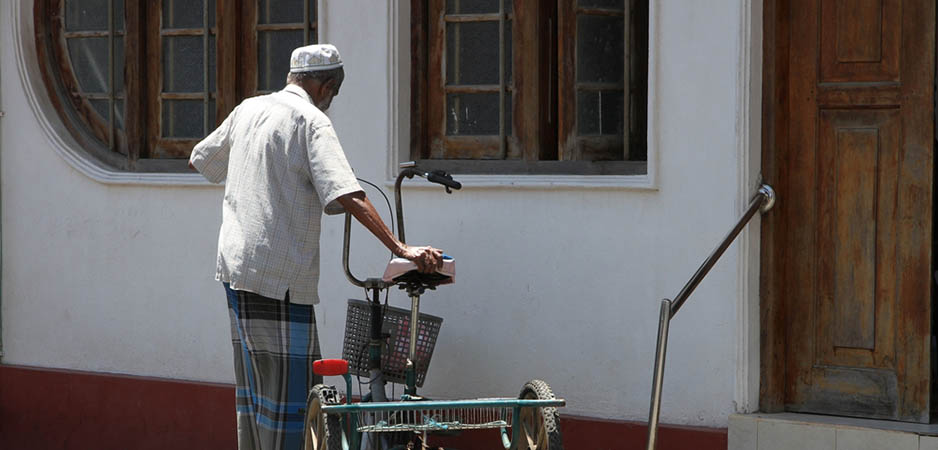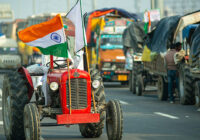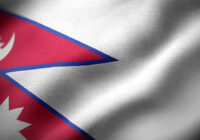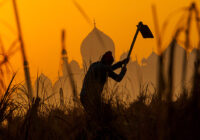At a time when their country needs healing and support, Sri Lankan Muslims have an obligation this Ramadan.
Each Ramadan, I set myself a challenge: How and what can I improve this year? For me, Ramadan is about setting and overcoming challenges in an attempt to progress spiritually and become a better person serving humanity. I do this as I travel on a path toward enlightenment and happiness in an attempt to connect with the “all spark.” This “spark” enables us to understand the most difficult lesson of our spiritual journey. Our destination is perhaps best exemplified by author Paulo Coelho in The Alchemist: “Go; travel the world, look for the truth and the secret of life — every road will lead you to this sense of initiation: the secret is hidden in the place from which you set out.”
This is the ultimate paradox of spiritual experience whereby the constant effort that we make to purify, control and liberate our hearts is, in the end, reconciliation with the deepest level of our being. The spark that God breathed into our heart (the fitra) is that of humility, the awareness of fragility, the consciousness of limitation and the shoulder of responsibility. Such is the meaning of profound spirituality requiring man to acquire a force of being and doing, rather than undergo despotic relentlessness of a life reduced to mere instinct. Within this space, we marry the purpose of our existence with the purpose of our subsistence.
Being close to the Quran’s light, its words and inspirations, we must comprehend the message: You are indeed what you do with yourself. You are responsible for the actions you take. Thus, Ramadan is the culmination of all worship as an attempt to reconnect with our spark. Ramadan ultimately reinforces our personal effort and commitment and invites us toward the deep horizons of introspection and meaning.
Sri Lanka After the Easter Sunday Attacks
Yet as Ramadan begins, there is an atmosphere of sadness. As a Sri Lankan and a Muslim, the start of Ramadan coinciding with the aftermath of terror attacks in Sri Lanka on Easter Sunday casts a huge shadow for what is supposed to be an Islamic holy month of prayer, introspection and spiritual contemplation. Introspection and contemplation now have a whole new meaning.
In the wake of such terrible violence that is anti-Islam yet perpetrated by people who called themselves Muslim, I wonder as to how Sri Lankan Muslims can and should respond. The terrorists who committed the attacks not only do not represent Islam, but with their heinous actions cannot be judged as Muslims. Yet the fact of the matter is that the outside world sees them as Muslims and, therefore, the Sri Lankan Muslim community will have to now answer to people who are hurt and angry. Doing so within the month of Ramadan brings with it challenges but also opportunities for Sri Lankan Muslims with questions they have to ask themselves.
How can we relearn the universal values of peace, compassion and justice as articulated by Islam, reinforced by Ramadan and binding in the brotherhood of humanity in the face of such aggression? How can we develop the concept of forgiveness and compassion? What should our response be? How can we move forward?
In asking these questions, one realizes that there are three possible answers. The first is not to care and go about your daily business, which negates the purpose of Ramadan. The second is to get upset and vindictive and start to hate and often to lose hope. The third is to get upset and channel that into something that is positive and to respond in the face of fear and uncertainty.
The second option again negates the purpose of Ramadan and of religion. We can’t afford to lose hope and faith. In the face of the greatest oppressions is the testimony for our faith and how we respond. If we truly believe that we as people of faith are the inheritors of the prophets and the conveyors of spiritual wisdom that has been passed down to us, we cannot lose hope. However, what we can do is redouble our efforts to call for and act for peace and justice. In doing so, we can also realize that there are things we are concerned about and that we have influence over.
Whilst we have a range of concerns — our health, problems at work, national crises, the security of the nation — the fact is that we have no real control over some things that happen to us. Yet there are other we can do something about in our “sphere of influence.” This sphere is what a Muslim is considered directly responsible for, whether as an individual or a collective. By determining which of these we focus most of our time and energy on, we can discover more about what we can be “activists” in.
In Islam, we know that God does not hold us responsible for anything other than our sphere of influence. The best expression of faith is to do one’s utmost in the enjoining of right and repelling of wrong within that sphere and speaking for justice, being a mercy to mankind. However, to refuse to use one’s power to change a wrong or to exercise influence on others to make a change is considered a manifestation of weak faith. A case in point is a hadith (saying) of the Prophet Muhammad (peace be upon him): “Whoever sees something wrong, let him correct it by his hand (with the power vested in him), and if he can’t (do that), let him correct it by his tongue, and if he can’t (do that), let him hate it with his heart, and this is the weakest of faith (if one can do more).” Correcting “by one’s hand” must be done with wisdom, calmness and justice.
Thus, we need to be speaking out against the injustices happening locally. We need to ensure that people in Sri Lanka (from all faiths) feel safe and secure, through forging alliances with like-minded people. However, it has to be more than that. We need to use the opportunities that are given to us, like Ramadan, to develop a greater social policy that empowers people, recognizes their differences and that searches for commonalities that will lead to greater respect and understanding.
This is our challenge as Sri Lankan Muslims this Ramadan: to go beyond our comfort zones and work on a local and national scale for the common good, with allies so that our country’s future is safe and prosperous. Ramadan has to reinforce in Sri Lankan Muslims our sense of purpose and responsibility, whilst nurturing the inspiration from the Quran that “God will not change anything for the good if you change nothing.”
Call for Unity in Ramadan
As the blessed month of Ramadan teaches us, we share the burdens of others — especially those who are suffering and in despair — and we remember our responsibilities toward them. Identifying with others in different ways is important in our role of living in society. Thus, we should remember that we are much more than a label and that our plurality and diversity are not divisive elements, but are a cause for celebration — and within that celebration is an understanding of common humanity and universal principles. This is a call for unity of the Sri Lankan Muslim community amidst the wider national society during this blessed time, but also at a crucial moment in Sri Lankan history.
 This call for unity is founded upon a universal humanitarian principle based on the following verse from the Quran: “If anyone saved a life, it would be as if he saved the life of all mankind.” Unfortunately, the perpetrators of the Easter Sunday attacks violated this principle. But this means the call is doubly strengthened as responsibility is placed upon the shoulder of the individual to take the lead in becoming a true citizen of their country.
This call for unity is founded upon a universal humanitarian principle based on the following verse from the Quran: “If anyone saved a life, it would be as if he saved the life of all mankind.” Unfortunately, the perpetrators of the Easter Sunday attacks violated this principle. But this means the call is doubly strengthened as responsibility is placed upon the shoulder of the individual to take the lead in becoming a true citizen of their country.
The Prophet Muhammad (peace be upon him) said: “You shall not enter Paradise until you have faith, and you cannot have faith until you love one another. Have compassion on those you can see, and He Whom you cannot see will have compassion on you.” Thus we learn our purpose of existence. The true lesson of Ramadan is to stand by justice and to portray the humility and compassion of the prophet toward the downtrodden, the distressed and the oppressed regardless of who they are.
So, the lessons this Ramadan for Sri Lankan Muslims is to recalibrate their ethical and moral compass at a time when their country needs healing and support.
The views expressed in this article are the author’s own and do not necessarily reflect Fair Observer’s editorial policy.
Support Fair Observer
We rely on your support for our independence, diversity and quality.
For more than 10 years, Fair Observer has been free, fair and independent. No billionaire owns us, no advertisers control us. We are a reader-supported nonprofit. Unlike many other publications, we keep our content free for readers regardless of where they live or whether they can afford to pay. We have no paywalls and no ads.
In the post-truth era of fake news, echo chambers and filter bubbles, we publish a plurality of perspectives from around the world. Anyone can publish with us, but everyone goes through a rigorous editorial process. So, you get fact-checked, well-reasoned content instead of noise.
We publish 2,500+ voices from 90+ countries. We also conduct education and training programs
on subjects ranging from digital media and journalism to writing and critical thinking. This
doesn’t come cheap. Servers, editors, trainers and web developers cost
money.
Please consider supporting us on a regular basis as a recurring donor or a
sustaining member.
Will you support FO’s journalism?
We rely on your support for our independence, diversity and quality.






